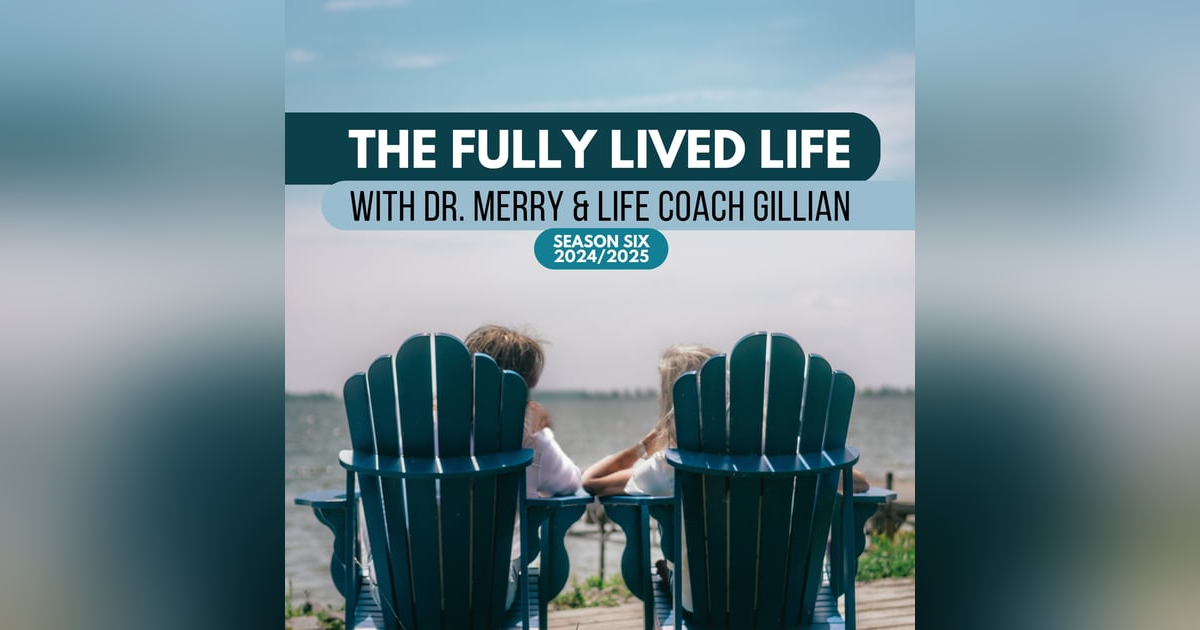061 - On COVID Stress and Brain Fog

Welcome to The Fully Lived Life podcast! A podcast for those who are longing to pursue the full life and want to break free from anything that holds them back. Listen in as two friends - a psychologist, Dr. Merry, and a life coach, Gillian - talk about life, love, and purpose - with wisdom, humor, and transparency - through the lens of science, psychology, and faith.
What?
Today Merry and Gillian poke a little fun at themselves whilst sharing their stories of “brain fog”. Do you suffer from this, and you’re finding yourself being self-critical during these moments? Extend some self-compassion and listen in as we walk through the body’s ability to both protect us and navigate times of ongoing stress.
So What?
Dr. Merry walks us through the way the brain reacts to stress and the limbic system and how it prepares us to respond. We hope that this conversation not only provides you some hope but also reminds you of the marvelous way you are “fearfully and wonderfully made” to handle what life can throw at us.
Now What?
Therapeutic Tip:
Making time for these emotions is an act of profound kindness and compassion to ourselves and others. The making of time for the emotions may be the biggest tool to get through this difficult time than trying to structure the stress. So if you, like us, are experiencing brain fog - you are in good company and your body is doing a kind thing by managing your resources. Ask yourself:
- What are you saying to yourself when you experience a moment of brain fog and forgetfulness?
- What is your body saying to you about what it needs when you’re feeling brain fatigue and what can you do for self-care?
Life Coaching tip:
- Where is the safe place to process your emotions?
- Mental health experts suggest that we can create a 5-minute worry window each day to allow ourselves to focus on our worries. How many of us try to push our worries aside and ignore them?
- Experts suggest scheduling a worry break during the day but not before bed. Acknowledge what you are worried about, acknowledge the feelings and thoughts that go with the worry, any supporting info, etc about and journal it if you wish to get it out to the light of day. It affirms your worry and your emotions and that they are valid and worth attention.
Links:
Dr. Merry’s book: https://amzn.to/2rCrJyI
Dr. Merry’s website: https://drmerry.com
Dr. Lin & Associates: http://drlinandassociates.com
Gillian’s Website: https://gillianmcshane.com
Article on Brain Fog: https://bit.ly/3vv4eDI








